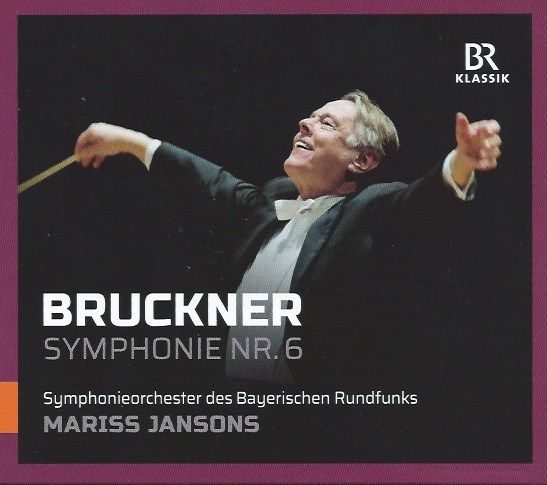Encountering Bruckner's Sixth Symphony
Bruckner's score holds great treasures if we only give it a chance ...

We tackled Bruckner's monumental Seventh Symphony in a luminous performance by that great Brucknerian, Bernard Haitink, in a previous Classical Explorer post. While the Seventh remains the most popular of Bruckner's symphonies, its immediate predecessor, the Symphony No. 6 in A Major, remains much less familiar. Yet Bruckner's score holds great treasures if we only give it a chance ...
Written between 1879 and 1881, the Sixth is unusual in Bruckner's symphonic canon as being relatively free of revisions; for once, when he was done, he was done, although we still have three major published editions available: Doblinger (1899), Haas (1935) and Novak (1952). There is an element of compactness to the symphony. It is all relative of course (here it lasts 54 minutes), but one can hear that concision quite clearly.
Mariss Janson's BRSO Bruckner 6 was recorded live in the Philharmonie im Gasteig, Munich in January 2015.
The first movement begins not with a tremolo, as one might reasonably expect from a Bruckner symphony (and as we heard with teh Seventh), but with a repeated rhythm on violins. And as we hear the first theme, in Jansons' hands we immediately feel a tautness (the Bavarian Radio recording is of wide dynamic range so you may find the very opening almost inaudible unless you turn your system up!):
Compare the his approach to the more majestic Otto Klemperer in his classic recording with the New Philarmonia Orchestra:
The expansive slow movement, marked "Sehr feierlich" (very solemnly) is a statement that is internal but dignified. It is in sonata form, the only onf of Bruckner's mature symphonies to exhibit this. Here the Bavarian orchetsra radiated glowing warmth, lile welcoming embers, but Jansons is responsive to the adventurous nature of Bruckner's writing (there are some striking woodwind interjections):
Its fair to say Klemperer has a majesty and a sense of otherworldly transcendence that escapes Jansons in this movement:
There's no doubting Janson's superb orchestra nor the similarly excellent recording; it is easy to luxuriate in the pure sound alone. But here, Klemperer has the measure of the movement
Janson's Scherzo is a fine performance. There is again anotehr unusual element here: the marking is "Nicht Schnell" (Not Fast), and Janson's adheres to this to maximal effect:
While Klemperer is slower still, he finds more of a dance element to the music:
Bruckner marks the finale "Bewegt, doch nicht zu schnell" (with movement, but not too fast). Jansons feels brisk:
... which is interesting, as Klemperer actually takes less time over the movement, but it all feels perfectly judged:
While the Bavarian recording is excellent and absolutely of today's standards, we must not forget that the Klemperer comes from a golden time for recording at what was then HMV. The Jansons, of course, complements our article on his Shostakovich Fifth Symphony perfectly.
The Jansons was recently released; the Klemperer has a quasi-legendary status (I remember hearing it first on LP, HMV Concert Classics released in 1980; Klemperer uses the Haas score). It depends what one is after who one chooses (or perhaps both); but my Klemperer remains a very cherished companion.
